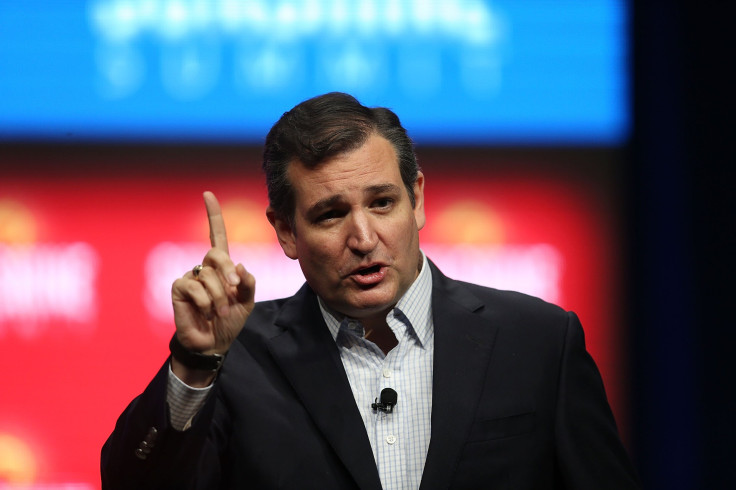Trump, Cruz On Top In Republican Primary Race While Carson Falls Behind, Says NBC-Wall Street Journal Poll

Real-estate mogul Donald Trump has reached his highest level of support yet in NBC News/Wall Street Journal polling centered on the Republican U.S. presidential race, while Sen. Ted Cruz of Texas has been on a skyrocket to second place, Sen. Marco Rubio of Florida has been on a climb to third and retired neurosurgeon Dr. Ben Carson has been in a freefall to fourth.
Released Sunday, the latest NBC News/WSJ poll showed Trump leading the GOP presidential pack with 27 percent support, up 4 percentage points since its last reading in late October. He retook the top spot from Carson, who dropped into fourth place, with 11 percent support, down 18 points.
Meanwhile, Cruz moved into second place with 22 percent support, up 12 percentage points, and Rubio moved into third, with 15 percent, up 4 points.
The poll results suggested Cruz gained some of the support lost by Carson. The former front-runner has seen his numbers nosedive since the Nov. 13 terrorist attacks in and around Paris and the Dec. 2 terrorist attack in San Bernardino, California, put the spotlight on foreign policy. Carson has stumbled on several occasions, raising doubts about his knowledge of foreign affairs.
Back in the Republican presidential pack are former Florida Gov. Jeb Bush, with 7 percent support, and businesswoman Carly Fiorina, with 5 percent support. All the other GOP candidates received 3 or fewer percent support.
If the Republican field were narrowed to five candidates -- Trump, Cruz, Rubio, Carson and Bush -- their order of ranking would not be affected. In such a hypothetical matchup, Trump would lead with 30 percent support, while Rubio would gain the most ground, picking up 6 percentage points to finish with 21 percent. Cruz, Carson and Bush each would gain 2 percentage points, giving them 24 percent, 13 percent and 9 percent, respectively.
The NBC News/WSJ poll of 1,000 adults was conducted Dec. 6-9 with a margin of error of 3.1 percentage points. Some additional interviews of Republican primary voters were included to increase survey representation of that group to 400, and those questions had a margin of error of 4.9 percentage points. Some additional questions were added to the poll after Trump proposed Monday that the U.S. ban Muslims from entering the country. They were answered by 495 respondents Dec. 8-9 and had a margin of error of 4.4 percentage points.
© Copyright IBTimes 2024. All rights reserved.






















